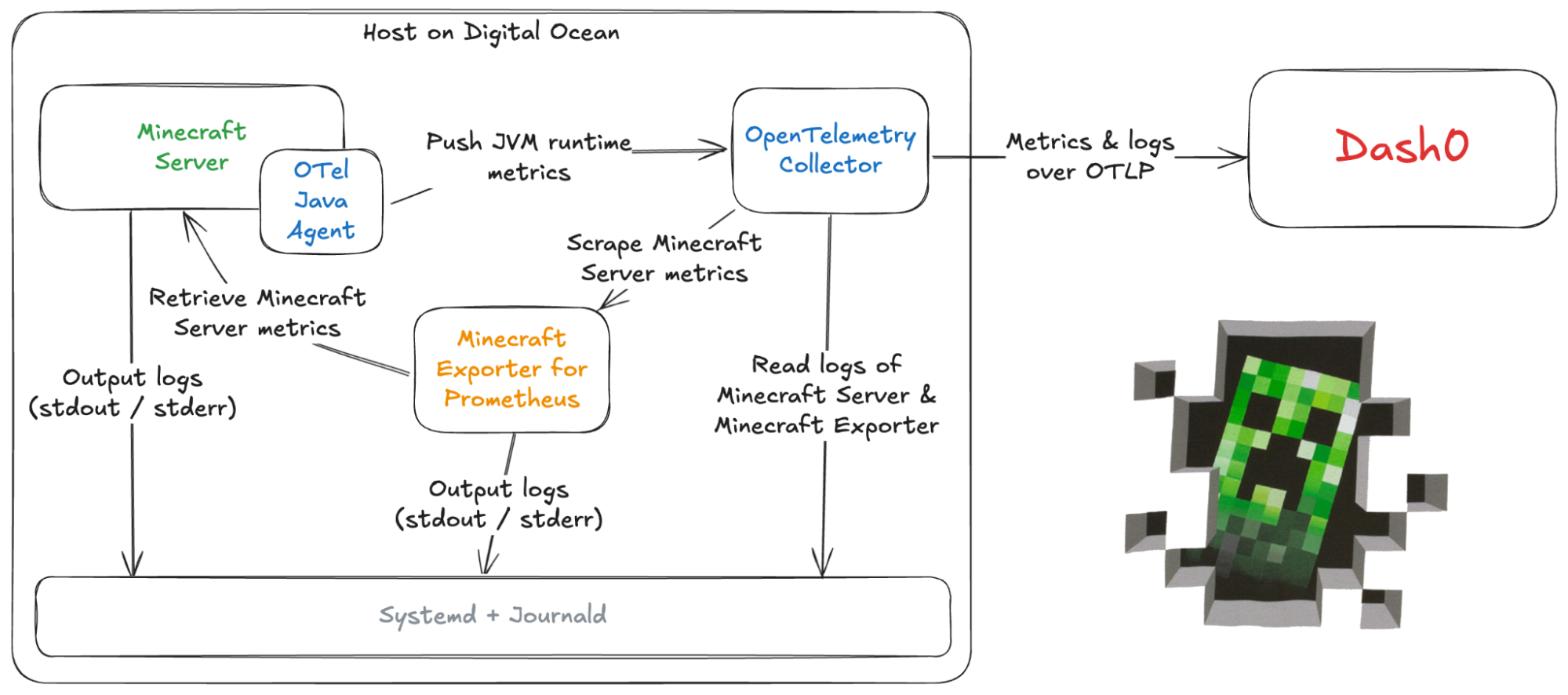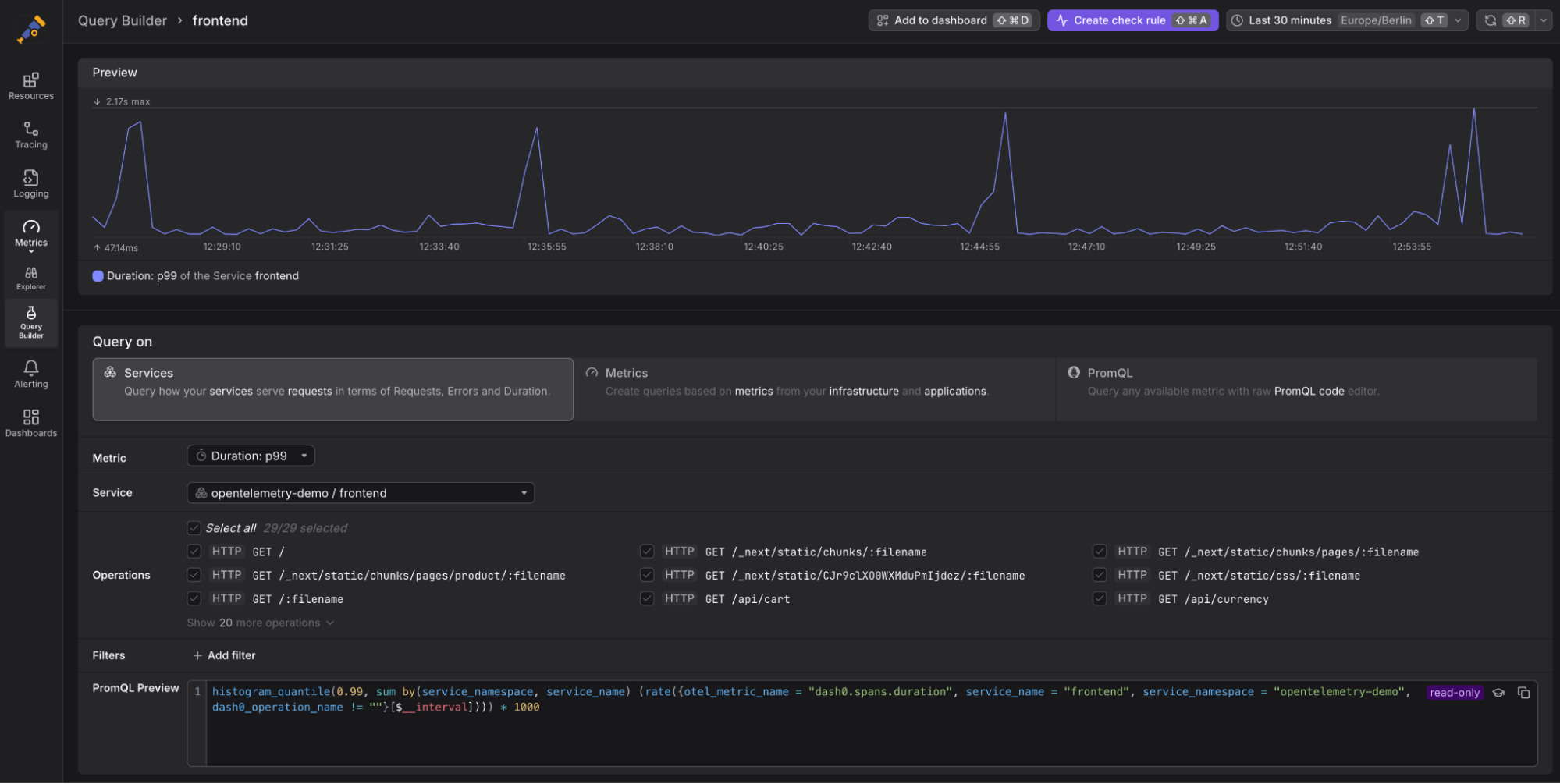Monitoring My Minecraft Server with OpenTelemetry and Dash0

To enable multiplayer Minecraft mischief with the kids, I set up a Java Minecraft server on a Linux VM and implemented comprehensive monitoring using OpenTelemetry, a Prometheus exporter, and Dash0. The OpenTelemetry Java Agent monitors JVM health, a Minecraft Prometheus exporter collects game-specific metrics (player count, blocks mined, etc.), and the OpenTelemetry Collector aggregates and sends all data to Dash0. Dash0's PromQL queries and log monitoring allow me to track server status, such as downtime and JVM restarts, with Slack alerts. The process was a fun refresher on Java and Linux sysadmin skills. While the dashboard is simple, a stable server is the priority.
Read more
